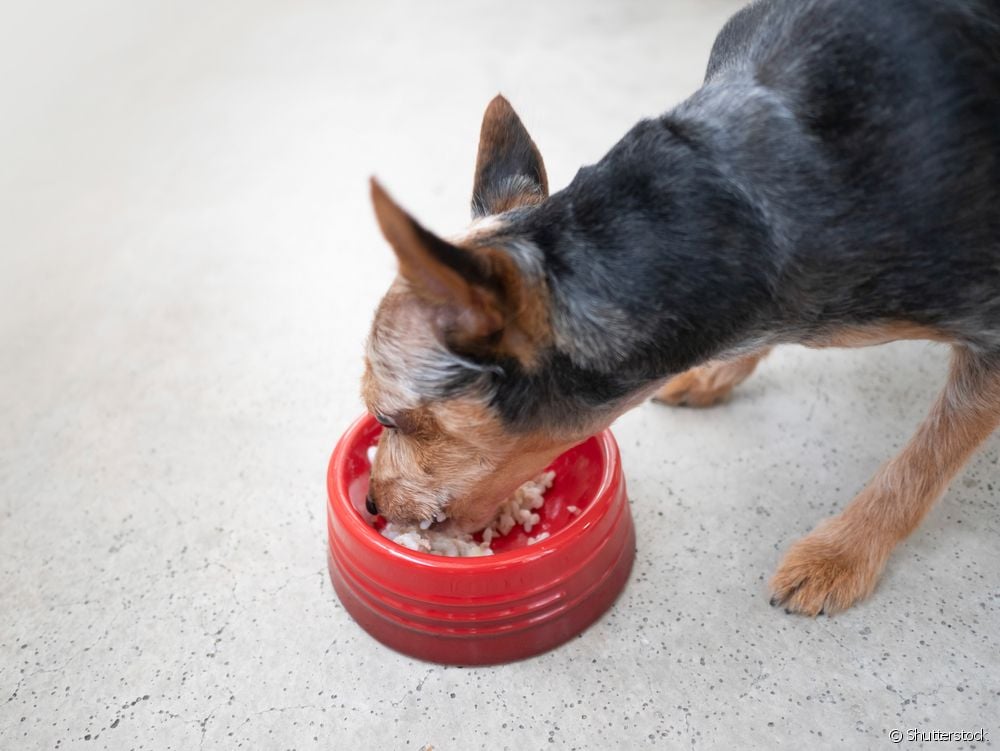Can dogs eat rice?

Table of contents
Can dogs eat rice? It is very important to be aware of the foods that are allowed and forbidden for dogs before offering any type of food that deviates from their diet. The canine organism works differently from ours and is not always able to digest human foods, mainly due to the spices that are used. So, even if it is tempting to eat rice, it is not always possible to eat rice.offer that leftover lunch to dogs, don't forget to think about your pet's health and well-being first. Are you curious to know if it's bad to give rice to dogs? Then come with us to find out the answer!
Rice for dogs: can it or can't it?
Unlike other foods that are considered harmful to dogs, rice is nutritious, healthy and does not contain any type of substance that is considered harmful to the canine organism. The grain is a source of iron, calcium, fiber and vitamin D, and can even bring some benefits to the dog's health. However, it is important to talk to a veterinarian about the benefits of rice.to receive the proper guidance on the quantity and method of preparation of rice for dogs, which should always be cooked. As it is a food very rich in carbohydrates, any excess is dangerous because it can predispose the animal to obesity. In addition, it is also necessary to check that the dog does not have any allergiesfood as a precaution.
Dogs can eat brown rice, but always with caution
The choice of the type of rice does influence the health of the dogs, but it does not serve as an impediment to the consumption of the food. Therefore, the dog can eat white or brown rice - the tutor chooses. Both are a great source of energy, the difference is that brown rice is less processed and less caloric than white. It also contains more fiber and vitamins in its composition, which is very useful for dogs.advantageous for the puppy's diet.
See_also: Havana Brown: learn all about the brown cat breedOn the other hand, white rice is easier for the canine body to digest, and therefore often ends up being the most suitable option. In any case, both variations of the food can be offered to the furry ones.

Rice is bad for dogs if it has garlic or other spices in it
Can dogs eat rice with garlic or onions? Although both ingredients are commonly used to make rice, they should be avoided altogether if you want to introduce the food to your friend's diet. Garlic and onions are considered quite toxic to dogs, and their consumption can trigger anemia in dogs. In addition, garlic contains a substance called allicinwhich also affects the animal's red blood cells, impairing the proper functioning of the kidneys and, in some cases, can lead to kidney failure. The most recommended is not to use any type of seasoning in the preparation of rice for dogs.
Can rice and beans be offered to the dog?
Another very frequent question is whether the dog can eat rice and beans, a combination that is part of the typical Brazilian dish. Fortunately, the answer is yes, because just like rice, beans also contain important nutrients for canine health, such as protein, iron, calcium and various vitamins. The main attention is with the way of preparing the food, which should not contain any type of seasoning.Therefore, if the beans are made with sausages, meat, garlic, onion, salt and bay leaves, the food is not suitable for animals.
So it's best not to offer leftover lunch to dogs, because they are seasoned to suit our taste buds, but as long as the rice and beans are prepared especially for your pooch - i.e. without any seasoning - there won't be a problem.

